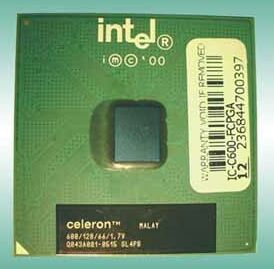De mannen van HardwareCentral hebben eens onderzocht hoe het staat met de overklokbaarheid van Celerons met de cC0 stepping. De cC0 core stepping wordt sinds enkele maanden door Intel gebruikt voor haar FC-PGA processors die nu o.a. profiteren van een wat kleinere die-size. Voor de twee geteste Celeron 600's resulteerde dit in snelheden van 927 en 945MHz, dus een toename 55 en 58 procent! De concurrent, een AMD Duron 600 @ 904MHz, werd gebruikt om de prestaties te vergelijken. Het blijkt dat deze AMD proc nog steeds sneller fietst dan de cC0 Celerons, ook al is het verschil wel een stuk kleiner geworden. Er mag dus gesteld worden dat in bepaalde gevallen deze Celerons toch wat aantrekkelijker zijn geworden:
So in the end, do we recommend the Celeron with the new cC0 stepping? In general, no, but in some circumstances it might be the best option.
For non-overclockers, the Duron is the best option, hands down. The Celeron’s performance at default clock speeds simply isn’t good enough.
[...] Even if upgrading an older system, the Duron is still the best option in most cases. As we said, the motherboards do tend to be a bit more expensive, but the performance and lower cost of the Duron offset that easily.
The only instance in which we recommend the cC0 Celeron is for users upgrading from specific setups. Primarily, those who might still be clinging to a BX/300A combo might find some use in the Celeron. Assuming your board meets the Celeron’s voltage demands, you could pop a cC0 into your current setup (no memory or board upgrade needed), and be able to run it at 900+ MHz with ease. At higher speeds with the BX chipset, the increased bus speed does pull the Celeron closer to the Duron, so if you can get it running at 950 MHz or higher, you’ll actually have quite a decent setup, and for only about $70. For once, the slower 66 MHz bus will actually come in handy for those users--no need to worry about new RAM, or high AGP speeds on the BX chipset.
 |

